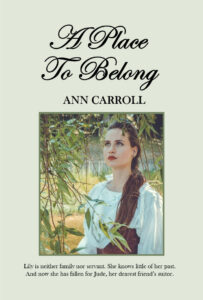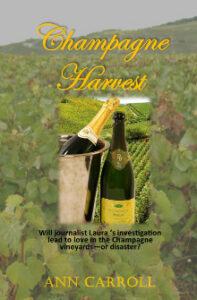Ann Evans: Hints & Tips For New Writers #7
28 October 2020
 Structure is so important when you’re writing in any genre, not just romance. In fact, regardless of what you are trying to create, if you don’t have solid structure then it’s all going to fall apart. And you don’t want your story to fall apart at the seams.
Structure is so important when you’re writing in any genre, not just romance. In fact, regardless of what you are trying to create, if you don’t have solid structure then it’s all going to fall apart. And you don’t want your story to fall apart at the seams.
Take a building for example. Firstly, it needs solid foundations, and then a strong framework around which is attached the fabric of the building. Next comes the décor – which is where the builder or designer makes that building the best it can be.
Change the metaphor to making a cake. The solid foundation is the cook’s knowledge of cookery, of being able to follow a recipe, of knowing how ingredients react with one another; of knowing when the cake needs to go in and come out of the oven. The framework is the ingredients and how they combine together. The decoration is the special little touches that make the cake perfect.
It’s the same when writing a story or a book. Those solid foundations which we need are your skills as a writer – the knowledge that you’ve acquired so far. When you’ve got solid foundations then you can build with confidence.
The framework is the many different aspects to a story: characters, setting, viewpoint, plot, conflict, dialogue, narrative, tense, theme, editing and presentation. The décor is your personal style and flair: your descriptions, the depth of the emotion woven into the story, the realism of your characters, the lively and realistic dialogue; it’s how effective you are in building tension and atmosphere; it’s those unexpected twists and turns in the plot that only you could have thought of.
Your story isn’t just a collection of words, it’s a logical sequence of events that take the reader from the beginning to the end with increasing conflict, tension and interest along the way. Your story structure may be vague or highly detailed, or somewhere in between. Think of it as a guideline that you can follow or veer away from as you choose.
Don’t worry that plotting and structuring will hinder your creative streak or stop the characters from developing. Structure is not carved in stone. You can change things at any time. It is merely a guide, so you don’t get lost, plus it helps to avoid writing yourself into a corner. And best of all, if you can see a vague outline of your story, especially for a book or serial, it’s not quite such a daunting prospect to get from ‘A’ to ‘Z’.
Develop those solid foundations as a writer
- Understand the basic elements of writing fiction.
- Get punctuation perfect – particularly around dialogue.
- Make sure dialogue is there for a reason – know those reasons
- Cut back on adverbs after speech tags.
- Understand that viewpoint is different from point of view.
- Know to write through the viewpoint character’s eyes and emotions.
- Don’t head-hop.
- Know the importance of editing your writing – time and again.
- Cut out superfluous words and repetitions.
- Get used to reading your work out loud. Listen to the euphony of every sentence.
- I’m sure writers will come up with lots more basic ‘rules’ to writing, but if you can master these, then that’s a pretty good start to having solid foundations for your stories and novels.
Happy writing everyone!
Ann
 Ann Evans writes romance under the name of Ann Carroll, she also writes thrillers, books for children, YA and reluctant readers. She is also a freelance feature writer for various magazines.
Ann Evans writes romance under the name of Ann Carroll, she also writes thrillers, books for children, YA and reluctant readers. She is also a freelance feature writer for various magazines.
Website: www.annevansbooks.co.uk
Facebook: https://www.facebook.com/annevansbooks/
Twitter: https://twitter.com/annevansauthor
For more advice and tips:

Become a Writer: A step-by-step Guide. https://amzn.to/2un61ju
Ann writes romance as Ann Carroll. Have you read: Champagne Harvest, A Tropical Affair and A Place to Belong.






